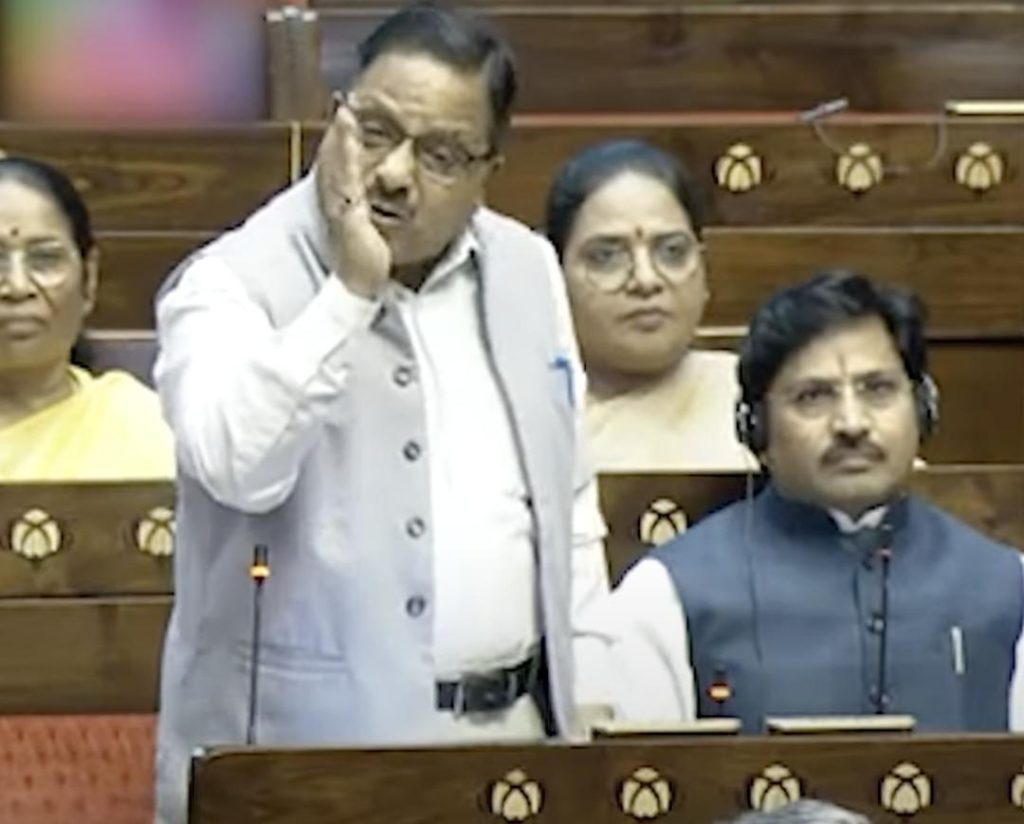
Should I read Quran & tell you what’s written in it: BJP MP Radha Mohan Das on Waqf Bill
The Waqf Bill, aimed at reforming the Waqf Board, has been a topic of heated debate in the Indian parliament. Recently, during the discussion on the bill, BJP MP Radha Mohan Das sparked a controversy by saying that he should read the Quran and tell the people what is written in it. The statement was made in response to the allegations made by the opposition regarding the lack of transparency in the Waqf Board’s functioning.
In a video clip that went viral on social media, Radha Mohan Das can be seen saying, “The Quran says that even if one rupee is given to anyone, there should be a written record. And you say you have so many properties without a record.” He was referring to the vast properties and assets owned by the Waqf Board, which has been accused of not maintaining proper records of its transactions.
The BJP MP’s statement has raised several questions and concerns among the Muslim community and critics of the government. Some have accused him of being ignorant of Islamic laws and the Quranic teachings, while others have seen his statement as a desperate attempt to deflect attention from the real issues surrounding the Waqf Bill.
To understand the context and significance of Radha Mohan Das’s statement, it is essential to delve deeper into the Waqf Bill and the controversy surrounding it. The Waqf Bill is aimed at reforming the Waqf Board, which is responsible for managing and regulating the waqf properties in India. The bill proposes to increase the transparency and accountability of the Waqf Board, as well as to empower the minority communities to participate in the decision-making process.
However, the opposition parties have been criticizing the bill, claiming that it is an attempt to undermine the autonomy of the Waqf Board and to give more power to the government. They have also accused the government of trying to exploit the waqf properties for its own political gains.
Radha Mohan Das’s statement, therefore, can be seen as a reaction to the opposition’s allegations. By citing the Quranic verse, he was trying to emphasize the importance of transparency and accountability in the Waqf Board’s functioning. The verse he quoted is from Surah Al-Tawbah, Verse 34, which states, “And whatever you spend (in charity) – indeed, Allah is Knowing of it, and those who spend (in charity) while they are in a state of heedlessness, they are the ones who deny the truth.”
In this context, Radha Mohan Das was highlighting the Quranic emphasis on the importance of keeping a written record of transactions, including those related to charity and donations. He was implying that the Waqf Board’s lack of transparency and failure to maintain proper records of its transactions are in violation of the Quranic teachings.
However, some critics have argued that Radha Mohan Das’s statement was misplaced and showed a lack of understanding of Islamic laws and teachings. They pointed out that the Quranic verse he quoted is not directly related to the Waqf Board or its functioning.
Moreover, they argued that the statement was an attempt to distract attention from the real issues surrounding the Waqf Bill, such as the government’s plans to take control of the waqf properties and to undermine the autonomy of the Waqf Board.
In conclusion, Radha Mohan Das’s statement on the Waqf Bill has sparked a controversy and raised several questions and concerns. While his intention may have been to highlight the importance of transparency and accountability in the Waqf Board’s functioning, his statement has been criticized for being misplaced and showing a lack of understanding of Islamic laws and teachings.
The debate surrounding the Waqf Bill is complex and multifaceted, and it is essential to engage in a nuanced and informed discussion about the issues involved. Rather than making sweeping statements and citing Quranic verses out of context, it is important to focus on the real issues and to engage in a constructive dialogue that takes into account the concerns and perspectives of all stakeholders.
Source: https://www.youtube.com/watch






